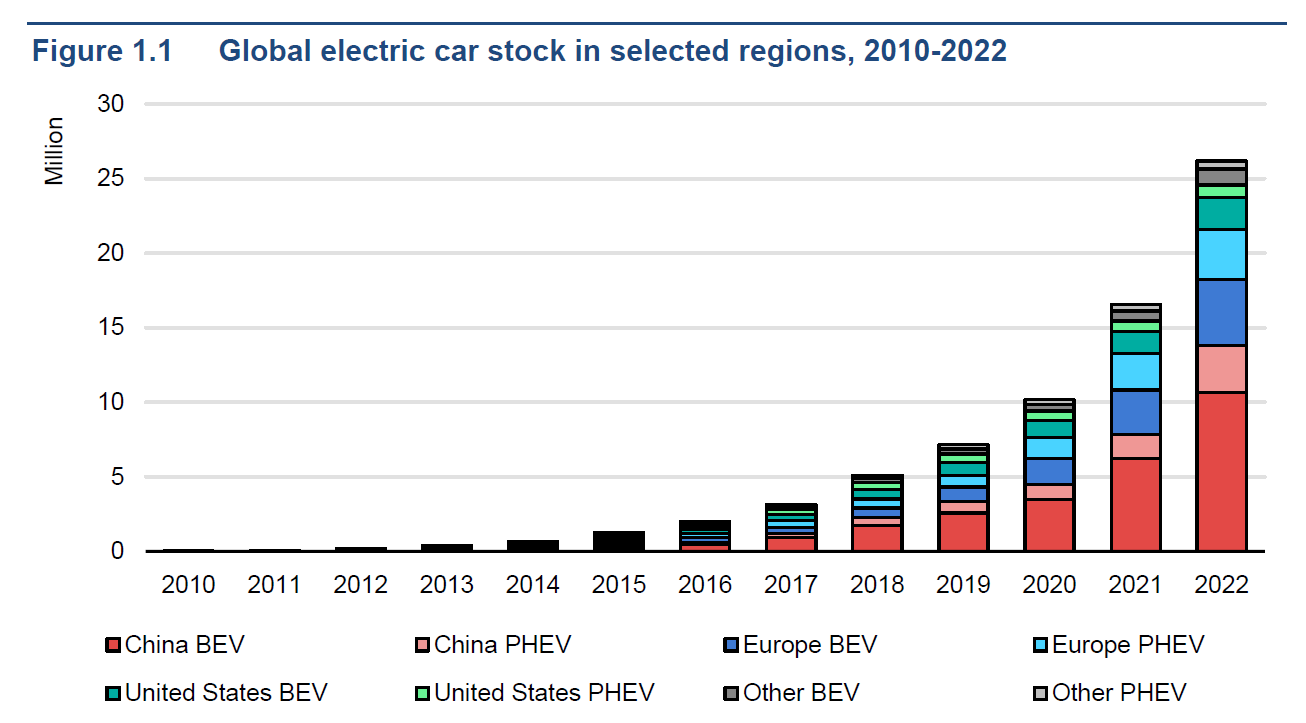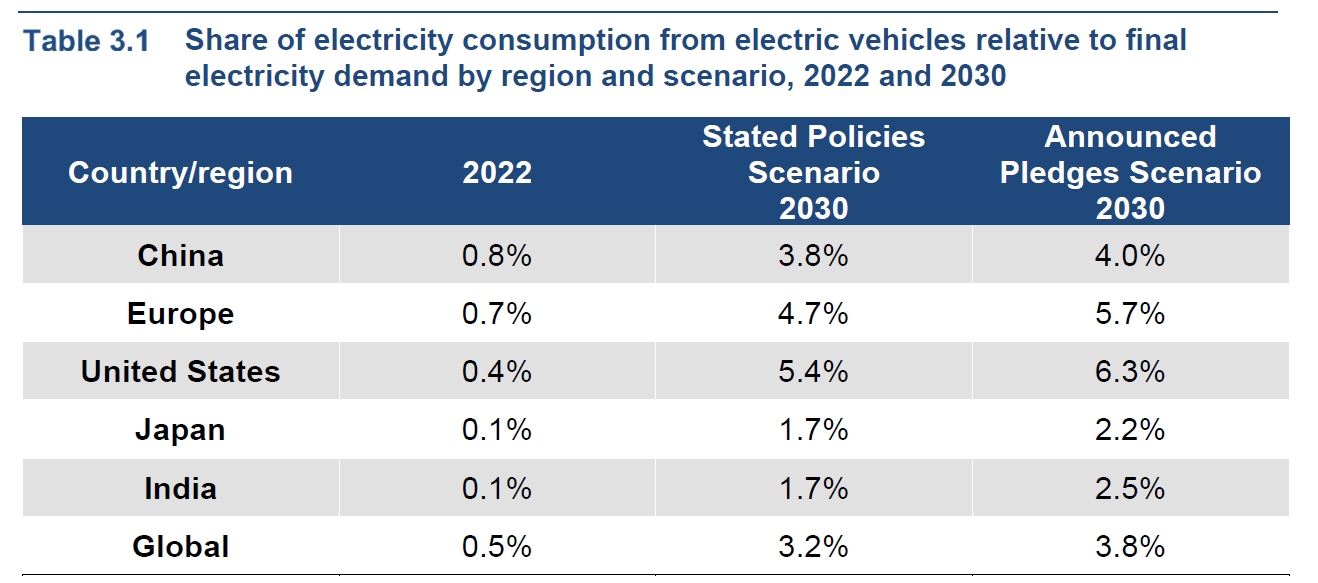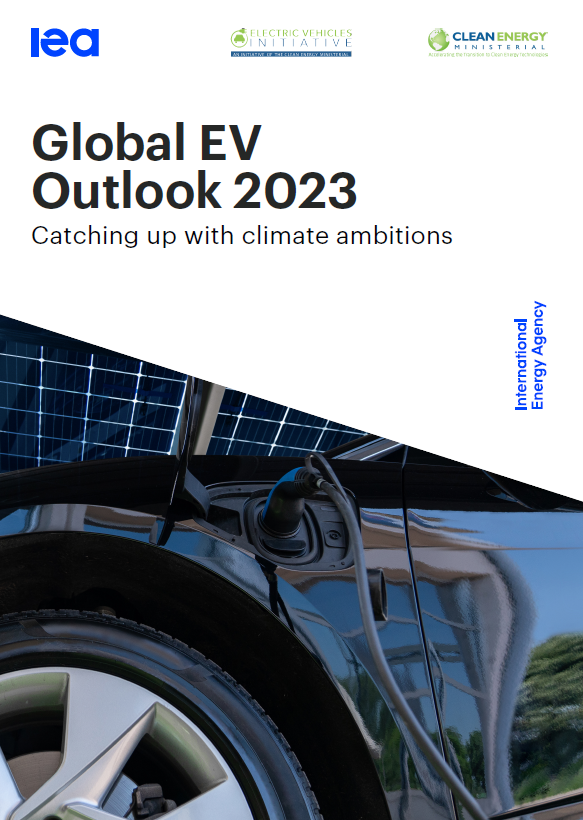Internationally, electric vehicle sales have also been setting new records year after year. According to the statistics from the International Energy Agency (IEA), over 10 million electric vehicles were sold globally last year, representing a 55% increase from 2021. The first quarter of this year has been even more inspiring, with over 2.3 million electric vehicles sold in just a few months.
China leads in electric vehicle ownership, while Southeast Asia catches up in sales
In China, Europe, the United States, and other regions, China not only holds the top position but also accounted for over half of the global electric vehicle total last year, which is quite impressive. Observing the Southeast Asian region, emerging markets and developing economies (EMDE) such as India, Thailand, and Indonesia experienced a surge of over three times in electric vehicle sales last year! This indicates that in the future, not only two-wheeled/three-wheeled electric vehicles but also electric cars in the Southeast Asian market will face fiercer competition.

The global electric vehicle stock reached a staggering 26 million in 2022, more than five times higher than in 2018 (Image source: IEA, Global EV Outlook 2023).
SUV craze unstoppable - electric SUVs are becoming extremely popular
It's worth mentioning that global consumers' love for sport utility vehicles (SUVs) has not diminished with electrification. Many car manufacturers targeted this market, and nearly 40% of all electric vehicles launched last year were SUVs. However, to meet the body size, weight, and performance requirements of electric SUVs, their batteries need to be twice the size of those in small electric cars. This means that the production process requires consuming 75% more critical minerals, as well as additional steel, aluminum, and plastics. Nevertheless, despite these challenges, electric SUVs make a significant contribution to carbon reduction and improving air quality. According to IEA research, traditional internal combustion engine-driven SUVs emitted a total of one billion tons of carbon over the past year. In contrast, using electric SUVs can replace the consumption of 150,000 barrels of oil per day and avoid exhaust emissions from fuel-powered vehicles.
Less than 4%! Electric vehicle electricity consumption Is negligible
Many people may worry that as the adoption of electric vehicles continues to rise, the global electricity demand will also significantly increase. However, according to IEA's analysis, under any policy scenario, the electricity demand from electric vehicles in 2030 will not exceed 4% of the global electricity consumption. The real electricity-hungry monsters are mainly industrial equipment, air conditioning, heating, and other power-intensive devices.

In 2022, electric vehicles accounted for only 0.5% of the global electricity consumption, and by 2030, it will still be less than 4% (Source: IEA, Global EV Outlook 2023).
Moreover, the carbon reduction benefits of electric vehicles are truly inspiring. If the world continues on a steady path towards net-zero, the electric vehicles' reduction potential by 2030 is estimated to be as high as 1.1 billion tons, equivalent to nearly Japan's annual emissions! Doesn't such an advantage make you consider getting an electric vehicle?

The International Energy Agency (IEA) releases the Global EV Outlook report annually to assess the development status of electric vehicles (Source: IEA, Global EV Outlook 2023).

















